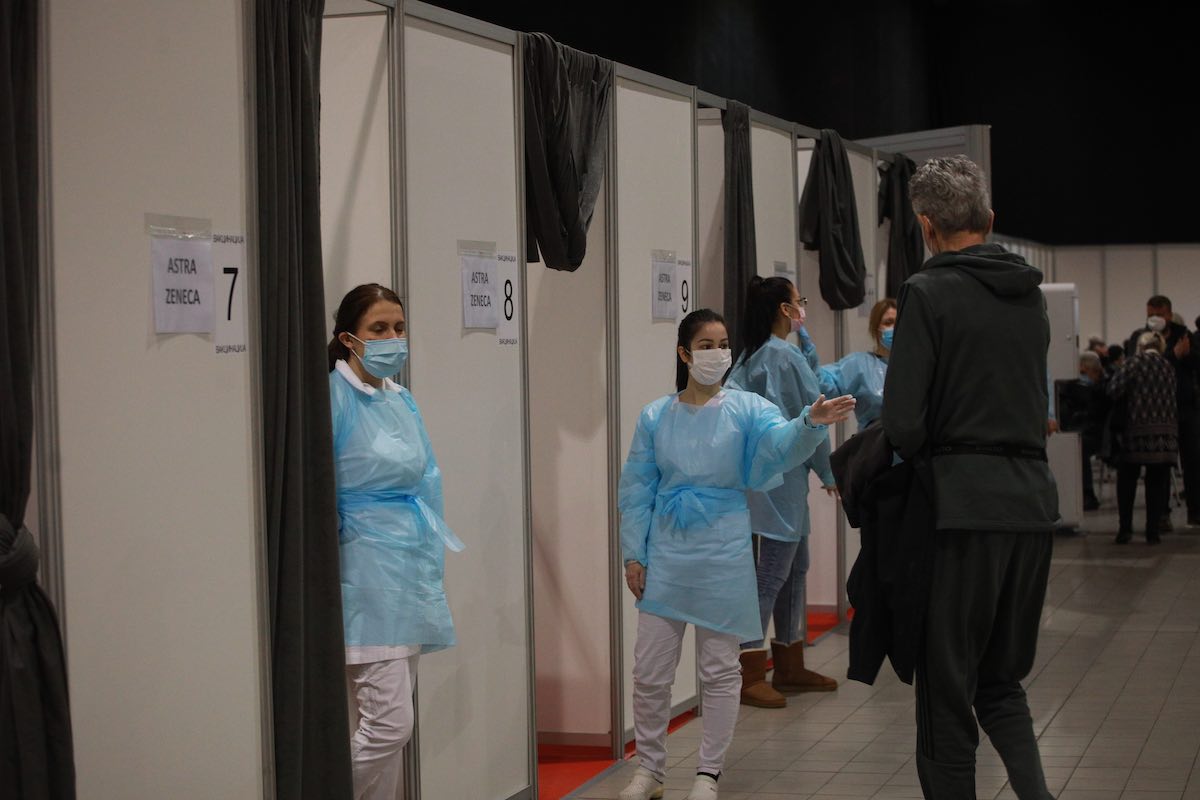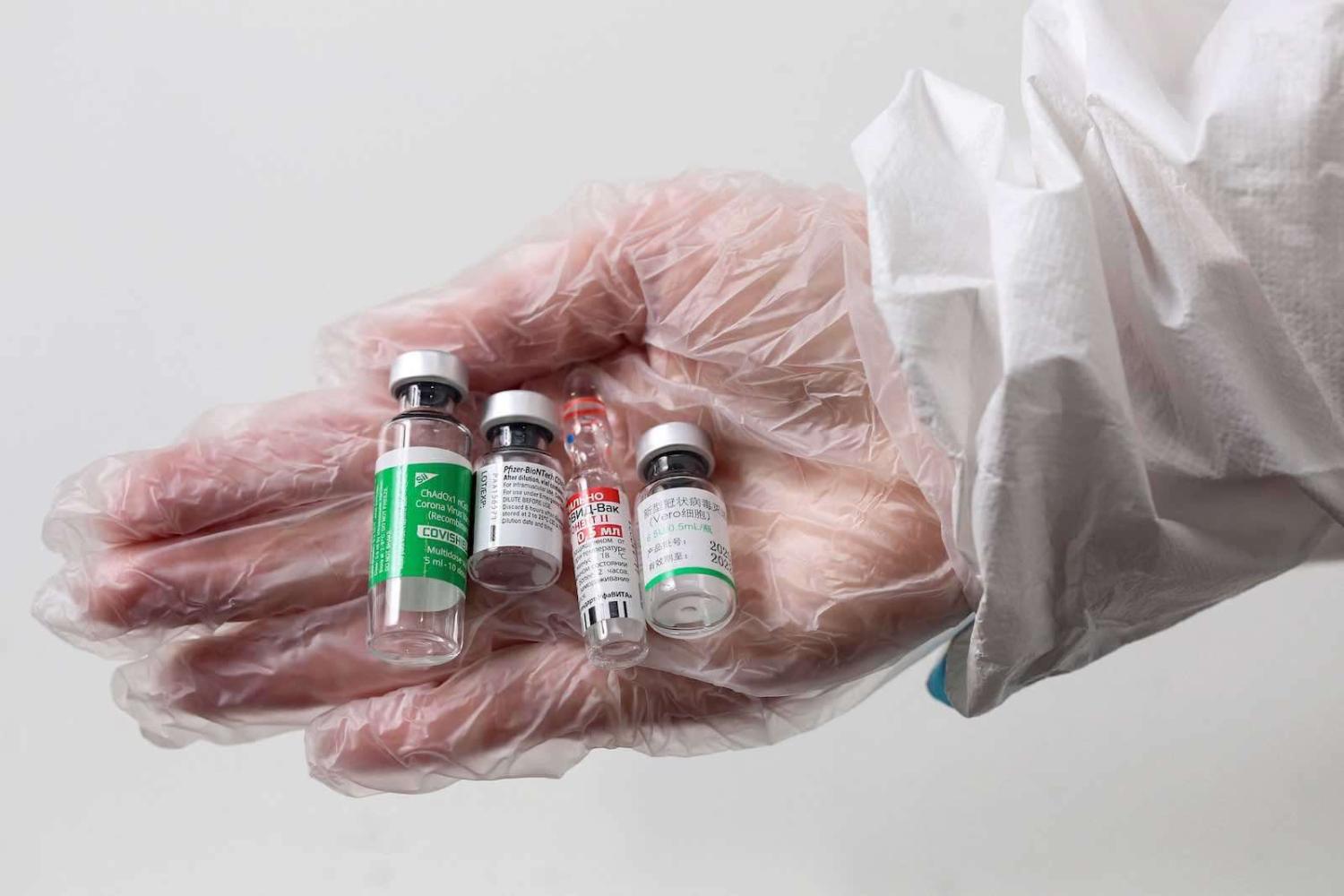There is a country in Europe whose citizens can freely choose which Covid-19 vaccine they wish to receive, whether the Western-made Pfizer-BioNTech or AstraZeneca, China’s Sinopharm or Russia’s Sputnik V.
Serbia – a landlocked nation in southeast Europe – has unexpectedly became a regional vaccination hub amid the Covid-19 “jab diplomacy”. At the end of March, thousands of residents from neighbouring countries, including North Macedonia, Montenegro, and Bosnia and Herzegovina, among others, travelled to Serbia to get a Covid-19 shot. There were also reports of a Turkish travel agency promoting “vaccine tourism” with packages beginning at €700 (A$1095) to those who wish to fly to Belgrade to get a Pfizer Covid-19 vaccine.
In the short term, Serbia’s decision to allow foreigners to use the country’s vaccine capacities will likely improve the Balkan nation’s image in the eyes of the global audience. Moreover, Belgrade could potentially use the “vaccine tourism” as soft-power leverage in its relations with neighbouring states. Unlike Serbia, other countries in the Balkans have struggled to secure any vaccine supplies. They have placed their hopes on the European Union or the international COVAX scheme. Belgrade, on the other hand, imported vaccines not only from Pfizer-BioNTech and AstraZeneca – which received authorisation in the European Union – but also from Russia and China.

Beijing has played an important role in Serbia’s vaccination campaign. Even at the very start of the pandemic, in March 2020, the country put in a plea to China for help. President Aleksandar Vucic slammed the EU for restricting exports of medical equipment, calling “European solidarity” a fairytale. At the same time, he praised China’s President Xi Jinping, calling him “friend and brother”. As a result, in January 2021, Serbia became the first European country to use Chinese-developed Covid-19 vaccine for mass roll-out.
Vucic himself recently took a job of the Chinese Sinopharm vaccine, while the country’s Prime Minister Ana Brnabic received the Pfizer vaccine. This interesting choice of shots could symbolise Belgrade’s geopolitical orientation. Although heavily dependent on the West, and surrounded by NATO and EU members, Serbia seems to attempt to balance among the interests of the European Union, United States, China and Russia.
As most countries are discovering, displays of diplomatic support are a prize in this new era of increasing rivalry between China and the West.
Until recently, the Western powers were relatively ambivalent regarding China’s influence in Serbia. In April 2012, just a year before Xi Jinping became president, China launched the 16+1 initiative, a platform bringing together China and 11 EU member countries in Eastern Europe as well as five candidate states in the Balkans. Lately, Greece, too, has made an effort to join this grouping of post-communist states, which has been rebranded 17+1. Ever since, China started making important investments in infrastructure in the so-called Western Balkan countries – in reality, all of them located in the central and southern parts of the Balkan Peninsula, not in the West. Indeed, Chinese investments in Balkan nations that are out of the EU are primarily concentrated in Serbia, which has the region’s largest economy and accounts for 44% of regional GDP.
Over the past seven years, China has built several plants in Serbia. They produce mostly car parts, although Chinese corporations are involved in the construction of highways, railways, bridges, energy and other infrastructure facilities in the country. Moreover, in 2016 China’s Hebei Iron & Steel Group bought Serbian steel plant Zelezara Smederevo that was previously owned by the American company US Steel. Chinese investors are reportedly interested in building an oil refinery in Serbia, as well as expanding their control over certain segments of the nation’s mining industry.
Beijing’s business in Serbia has now drawn the attention of the EU institutions. Some have accused Chinese companies operating in the Balkan nation of causing “dramatic air pollution”. On 10 April in Belgrade, thousands of protesters demanded a more vigorous government response to environmental damage caused by industries and pollution – a protest extensively covered by Western media.
As most countries are discovering, displays of diplomatic support are a prize in this new era of increasing rivalry between China and the West. Western powers would prefer to preserve the status quo, where Serbia remains in the Euro-Atlantic geopolitical orbit, but other actors such as China and Russia share a limited portion of influence. By way of example, in 2019, Serbia – whose parliament declared armed neutrality in 2007 – conducted 13 military exercises with NATO members. Yet in June 2020, Serbia reportedly purchased six new military drones from China.
Although Belgrade used “vaccination diplomacy” to slightly improve its position in the global arena, in the long term the country’s geopolitical orientation is expected to remain unchanged. Serbia will likely keep pushing for EU membership, with very little chances to join the Union anytime soon, if at all. At the same time, foreign corporations from both East and West are expected to continue using the coal-rich nation as a fertile ground for their lucrative businesses. This will likely redistribute the country’s wealth according to the new geopolitical reality in the post-Covid world.

